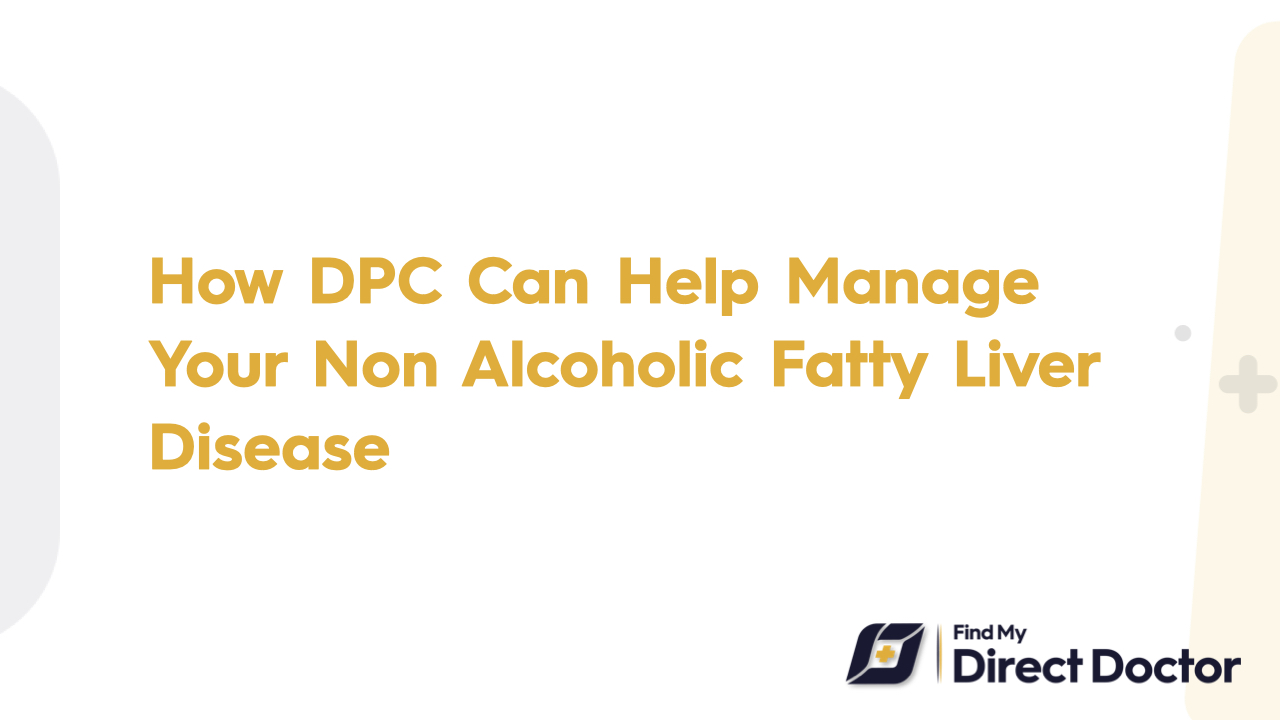



A disorder known as non-alcoholic fatty liver disease (NAFLD) occurs when fat builds up in the liver without alcohol use. It is frequently associated with metabolic syndrome, obesity, and insulin resistance. It is difficult to identify NAFLD in its early stages because it usually exhibits no symptoms. Fatigue, soreness in the abdomen, and in more severe cases, jaundice, abdominal swelling, or easy bruising, are all possible symptoms as the disease worsens. Liver inflammation, cirrhosis, and perhaps liver failure can result from untreated nonalcoholic fatty liver disease (NAFLD).

Direct Primary Care (DPC), which provides ongoing, individualized care, can greatly help manage NAFLD. By doing routine screens and blood tests to track liver function and spot early indicators of development, DPC doctors adopt a proactive stance. To assist control weight and lower liver fat, they emphasize lifestyle changes like diet and exercise regimens. Patients are given the ability to control their illness before it worsens and causes more significant liver damage thanks to DPC's emphasis on preventive therapy.
Having direct, unrestricted access to their healthcare practitioner is one advantage of DPC for people with NAFLD, as it guarantees that any issues or symptoms may be swiftly resolved. DPC providers are able to deliver individualized treatment programs based on the particular risk factors of each patient, such as diabetes or obesity. The course of NAFLD can be slowed or even reversed with the help of DPC's continuous follow-ups and treatment strategy revisions, which are centered on preventive and long-term health management. Patients benefit from better health outcomes and an enhanced quality of life as a result of this proactive strategy.
Patients in DPC receive therapy that is customized to meet their individual needs thanks to personalized management of NAFLD. In order to create a customized strategy that addresses the underlying reasons of liver fat buildup, DPC providers take the time to learn about each patient's medical history, lifestyle, and risk factors. This could entail making dietary and exercise changes as well as taking care of related illnesses like diabetes or high blood pressure. DPC assists patients in making long-lasting adjustments that can enhance liver health and avert consequences like cirrhosis or liver failure by providing continuing support, education, and monitoring.
Previous Post